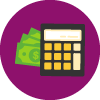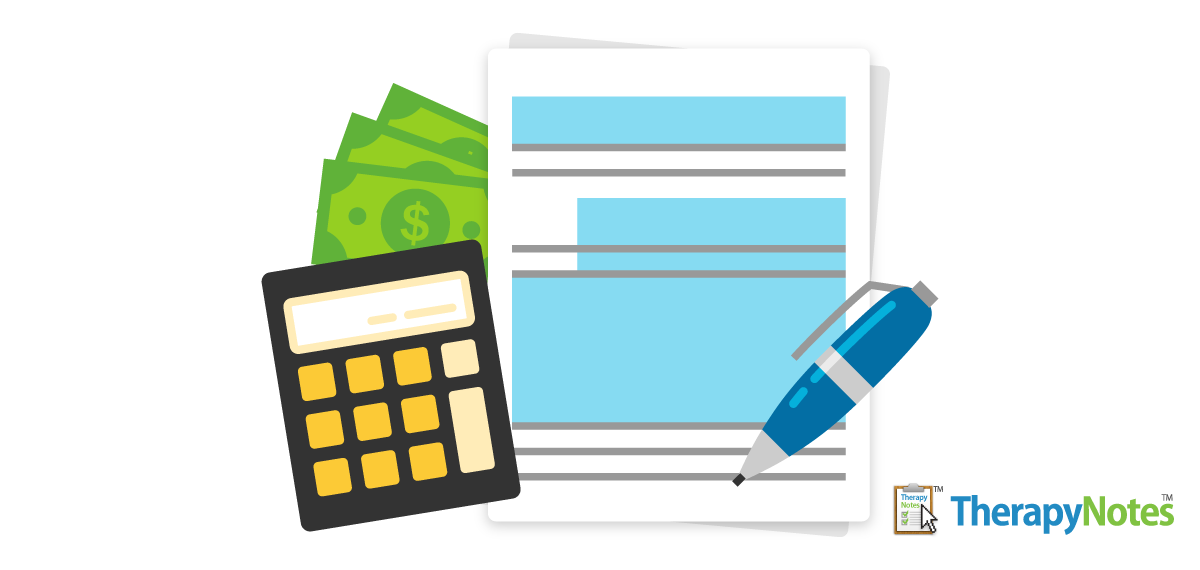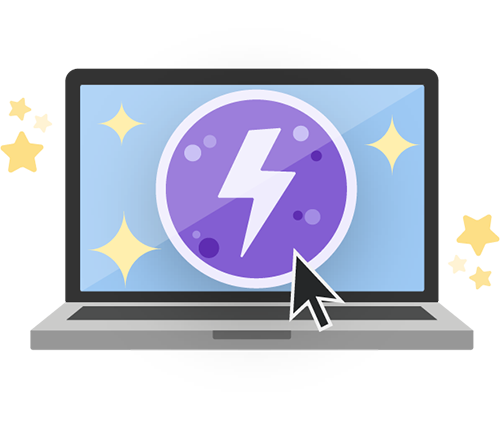7 Tax Tips for Your Private Practice
By TherapyNotes, LLC on January 31, 2018


Here are some tips that could benefit you this tax season and help you reduce your tax liability and enjoy more of your hard-earned income in the future. In addition to these tips, we highly recommend consulting with a certified public accountant (CPA) and your financial advisor.
1. Consider your business structure
Not all businesses are taxed the same, and this largely depends on the business structure. The business structures you have available to you varies by state, but common structures include sole proprietorship, limited liability corporation (LLC), professional limited liability corporation (PLLC), and S corporation. An LLC can have tax advantages over a sole proprietorship, and these advantages grow as you reach certain levels of income. However, LLCs may have disadvantages when compared to S corporations - as the owner of an S corp, you can be treated as an employee of the company rather than a self-employed individual, which has favorable tax implications. Talk to a CPA to determine which structure is the best fit for your practice. With some investment, you could reduce your tax liability.
2. Create an account with the Electronic Federal Tax Payment System
When self-employed, you're required to file both an annual tax return and pay estimated tax quarterly if you expect to owe over $1,000 in taxes when your return is filed. Your estimated tax is used to pay Social Security and Medicare taxes. Creating an account with the Electronic Federal Tax Payment System will allow you to schedule automatic payments for your quarterly estimated taxes rather than mailing your estimated tax each quarter. This could help you ensure that all of your quarterly estimated taxes are paid on time.
3. Block off time to review finances
Working through all of your finances at once to prepare for your taxes can be extremely overwhelming. However, by reserving a few hours every month to review your practice's finances, you could both avoid stress and potentially find more opportunities for tax savings. Use this time each month to evaluate changes in income, plan how much money to set aside for your taxes, keep track of business expenses, and more accurately estimate how much you should pay in taxes each quarter.
4. Maximize 401(k) contributions
If you have a 401(k) plan, your contributions can reduce your taxable income. Contributions to your 401(k) are made from your pre-tax earnings, so these contributions are not included in your taxable income for the year. If you maintain a Self-Employed 401(k), your contributions can be even higher than in a traditional 401(k) since you are acting as both an employer and an employee.
5. Be aware of the Section 179 deduction
Section 179 of the IRS Code allows you to claim tax deductions for property the year that you purchase the property that are larger than your standard year-after-year tax deductions for tangible assets. Don't be fooled; despite being a tax deduction for 'property,' land and buildings do not qualify for this deduction. However, for assets such as off-the-shelf software (like your TherapyNotes subscription), office furniture, equipment, or other tangible property that you use to conduct business, you could choose to take a full deduction for the cost of the item immediately.
6. Know what qualifies as a business expense
Claiming deductions for the business expenses associated with running your practice could reduce your tax liability. For example, if you decide not to claim the Section 179 deduction on assets, you may still claim deductions for equipment depreciation. If you use your car or your cell phone to conduct business, you may also be able to claim deductions based on your use of these assets for business purposes. And, if you're self-employed and aren't eligible for other coverage, your healthcare premiums under a private health plan are fully deductible. Expenses related to dues for professional organizations you belong to, license fees, continuing education, and rent and utilities are also eligible for tax deductions, and if you have other employees in your practice, the insurance coverage and assistance benefits you offer may be deductible as well.
For more information on the expenses that could be deductible for your practice, check out the following resources:
- What Employee Benefits are Deductible for My Business? from the Balance
- Deducting Business Expenses from the IRS
- Taking Business Tax Deductions from TurboTax
7. Don't forget about next year
Perhaps the most important factor in reducing your tax liability is careful planning. While there are many methods to make the most of your taxable earnings, most of these methods involve time, thought, and of course, consultation with an expert. You won't be able to reap the maximum benefits by waiting until your tax return is due.
For more information, check out the IRS video portal and talk to a CPA and your financial advisor.
* The content of this post is intended to serve as general advice and information. It is not to be taken as legal advice and may not account for all rules and regulations in every jurisdiction. For legal advice, please contact an attorney.
Get more content like this, delivered right to your inbox. Subscribe to our newsletter.
More Content You'll Enjoy
The Best Practice Fusion Alternative for Mental Health

Supercharge your Documentation with TherapyFuel!

